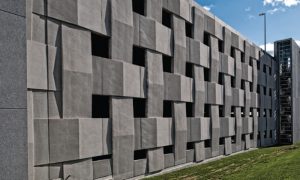Construction coming home?
The GCC witnessed spectacular growth in commercial office construction in the last decade, which led to an oversupply of commercial office space as investors and companies were reluctant to invest in the property market post the crisis. The oversupply which subsequently led to high vacancy rates resulted in a steep decline in property prices in […]

The GCC witnessed spectacular growth in commercial office construction in the last decade, which led to an oversupply of commercial office space as investors and companies were reluctant to invest in the property market post the crisis.
The oversupply which subsequently led to high vacancy rates resulted in a steep decline in property prices in the UAE.
Alpen Capital expects the rental yields to be under pressure in the near-term due to declining rentals on the back of high vacancy rates. The UAE market is expected to still enjoy a premium on rental yield as compared to mature markets of the US and Europe which will help in attracting foreign investments in the sector.
Once the global economic environment, particularly in the Eurozone, improves, Dubai, with its calm political environment, excellent infrastructure and low commercial property prices (as compared to historical prices) will lure property investors, high net worth individuals and the corporate sector to invest in commercial office space. In the longer term, Alpen Capital maintains an optimistic view of the commercial office construction market of Dubai on the back of rising population and stable economic growth.
Continued growth in global oil demand and an increasing long-term trend in oil prices have given a boost to GCC’s economy. With oil prices expected to be stable, any further increases in government spending will support investment and consumer spending, thereby having a positive effect on GDP growth.
Positive GDP growth forecast for the GCC region is expected to be translated into an increase in construction activities.
Increasing urbanisation and young and growing population base is likely to drive the construction sector across the GCC region. The GCC is also home to a large expatriate population and in a bid to drive real estate growth and investment, the governments of several GCC countries have opened up the real estate sector to foreigners, allowing them to own/lease properties. This, combined with the increasing influx of expatriate population in the region mainly due to shortage of skills among local nationals, is likely to drive housing demand in the GCC’s member countries.
Most of the GCC member countries have also been pro-active in changing their existing regulations in order to attract Foreign Direct Investment (FDI) and provide better living conditions to the expatriates providing a further boost to the construction sector.
Manageable inflation levels in the GCC region coupled with low property prices (as compared to historical prices) are likely to act as demand drivers for residential as well as commercial construction markets.
In addition, UAE and Qatar attracting the emerging market status from MSCI will give an impetus to the growth environment within these countries, inducing increased allocation of funds in the real estate and construction sector.
Oversupply remains the biggest challenge for the construction and real estate sector across the GCC. UAE remains the worst affected out of the member countries, witnessing a sharp decline in prices and rentals. Alpen Capital anticipates slower than expected recovery to further lead to project cancellations across the GCC region.
Numerous large projects were cancelled across the GCC in 2010 and 2011 due to weak investor sentiment and lack of funds. Banks across the GCC regions will continue to remain cautious in extending funds to the construction and real estate sector on the back of current uncertain economic conditions and an oversupply in most markets.
The GCC residential and commercial construction market is highly competitive and fragmented, marked by presence of several small and big players across the value chain. The increased competition within the sector is likely to result in competitive bidding by the players which is expected to drive down the margins of construction companies further.
The GCC residential and commercial construction market is highly competitive and fragmented, marked by presence of several small and big players across the value chain. High attrition rates among expatriate labour workforce remains a major hurdle for the GCC construction sector, as the expatriate labourers are drawn towards their home countries due to better job opportunities there.
“In their quest to move away from predominantly oil-based economies, the GCC nations initiated several big projects, with construction being one of their top-most priorities in the last decade”, says Sameena Ahmad, Managing Director at Alpen Capital.
















